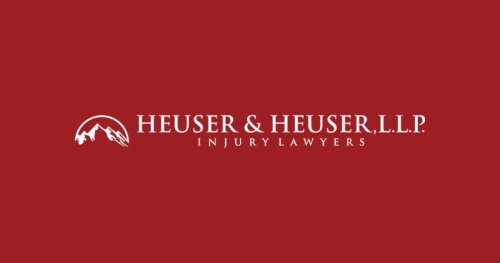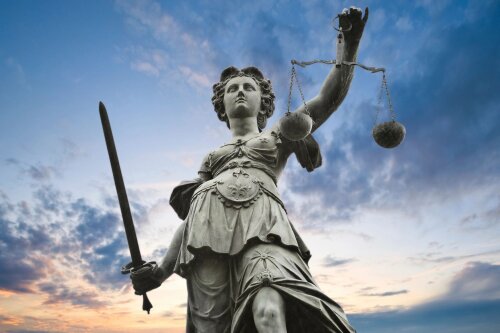Best Premises Liability Lawyers in Pueblo
Share your needs with us, get contacted by law firms.
Free. Takes 2 min.
List of the best lawyers in Pueblo, United States
About Premises Liability Law in Pueblo, United States
Premises liability covers injuries caused by dangerous conditions on someone else’s property. In Pueblo, as in Colorado, property owners owe a duty of care to people who enter their premises as customers, guests, or workers. The level of duty depends on the entrant’s status, with invitees receiving the highest standard of care to maintain safe conditions. Typical claims involve slip and fall accidents, dangerous stairways, and maintenance failures on commercial or residential property.
In Pueblo, injuries can arise on grocery store floors, shopping plaza parking lots, apartment balcony railings, or public buildings such as libraries and city facilities. State and local rules shape how these cases are pursued, including timelines to file and what evidence is needed. People pursuing compensation should understand that a successful claim often hinges on documenting hazards, showing notice to the property owner, and proving causation between the hazard and the injury.
Why You May Need a Lawyer
Legal counsel can help you navigate complex factual and legal issues after a premises related injury in Pueblo. Here are concrete, real world scenarios where hiring a premises liability attorney makes sense.
- You slip and fall in a Pueblo grocery store due to a recently mopped floor without warning signs, causing a knee injury that limits mobility for weeks.
- A broken stair or rail in a city building like a library or community center in Pueblo creates a fall that leads to a broken bone and medical bills.
- You are bitten by a dog on a Pueblo sidewalk and the owner refuses to acknowledge fault or cover medical expenses, making a claim against the owner’s liability necessary.
- An elevator malfunction in a rental property occurs, trapping residents and causing injuries; this may require pursuing a claim against the landlord or property manager.
- Car damage and injuries occur because a parking lot pothole at a Pueblo shopping center was never repaired despite known hazards.
- Water intrusion causes mold in a rental unit in Pueblo, leading to respiratory issues and medical treatment that the landlord should have prevented or disclosed.
Local Laws Overview
Premises liability in Pueblo is largely shaped by Colorado law and local enforcement. The following laws and statutory concepts frequently affect how these claims are evaluated and pursued.
Colorado Governmental Immunity Act (CGIA)
This act limits liability for injuries on public property and against government entities, including city facilities in Pueblo. It sets conditions under which a claim against a government body can be brought and how notices and defenses are managed. If your incident occurred on a government property or involved a government actor, CGIA often controls the scope and strategy of your claim.
Colorado Governmental Immunity Act limits liability for injuries on public property and requires strict notice and procedural steps before suing a government entity.
For official guidance on CGIA, see the Colorado General Assembly and Colorado Judicial Branch resources. These sources explain how governmental liability is assessed and what exceptions may apply.
Official references
Personal Injury Statute of Limitations
In Colorado, most premises liability and personal injury claims must be filed within a two year period from the date of the injury. This deadline can affect whether a case is timely or barred, so early legal review is important. Exceptions may apply for minors or discovery rules in certain circumstances.
In Colorado, most personal injury claims must be filed within two years from the date of injury (statute of limitations).
For definitive rules and any changes, consult official state sources and local Pueblo authorities. These time limits drive how quickly you must gather evidence, retain witnesses, and file a claim.
Comparative Fault and Liability Allocation
Colorado uses a comparative fault system to apportion liability among multiple defendants. If you were partially at fault for a premises related injury, the amount of recovery may be reduced proportionally to your share of fault.
Consult with a Pueblo attorney about how fault is assessed in your situation, especially when multiple parties could be responsible, such as a property owner, a maintenance contractor, or a tenant supervisor.
Frequently Asked Questions
What is premises liability in Pueblo?
Premises liability is a legal theory that holds property owners or managers responsible for injuries caused by dangerous conditions on their property. It depends on the status of the person visiting the premise.
What counts as a dangerous condition on a property?
Examples include wet floors without warning, broken stairs, inadequate lighting, potholes, or hazards not repaired after notice. The condition must be linked to your injury.
What is the difference between an invitee and a licensee?
An invitee is someone invited onto the premises for business purposes, such as a shopper. A licensee is a social guest or someone allowed on the property without a business purpose. Duty of care differs accordingly.
Do I need a lawyer for a premises liability claim in Pueblo?
While not mandatory, an attorney helps gather evidence, negotiate with insurers, and pursue timely claims. A lawyer can maximize your chances of fair compensation.
What should I do immediately after an injury on someone else’s property?
Seek medical care, document the scene with photos, obtain witness contact details, and report the incident to the property owner or manager. Preserve all medical and repair receipts.
How do I start a premises liability claim in Pueblo?
Consult with a local attorney to assess fault, gather evidence, and determine the proper filing timeline. Your lawyer can help prepare a demand letter or file a complaint if needed.
What is the statute of limitations for personal injury in Colorado?
The general rule is two years from the date of injury. There are exceptions for minors and certain discovery scenarios; consult a Denver or Pueblo attorney for specifics.
How much does a premises liability lawyer cost in Pueblo?
Many premises liability lawyers work on a contingency fee basis, earning a percentage of any recovery. If there is no recovery, there may be no attorney fees, depending on the agreement.
What is the typical timeline for settlement in Pueblo premises liability cases?
Settlements commonly occur within several months to a few years, depending on the complexity, the defendant’s insurance, and medical recovery. Some cases proceed to trial if a fair settlement cannot be reached.
Do I have to file a lawsuit to recover for injuries?
Not always. Many premises liability claims settle after initial demands and negotiations. Filing a lawsuit becomes necessary if a fair settlement cannot be reached.
Is there a cap on damages in premises liability cases?
Colorado does not generally have a single cap on all damages for premises liability claims. Caps can apply in specific contexts, such as government liability or certain types of injuries; consult an attorney for your situation.
Do I need to prove the property owner knew about the hazard?
Proving notice often strengthens a claim. You can pursue constructive notice through evidence that the hazard existed for a period of time and the owner failed to fix it despite reasonable opportunities.
What evidence should I gather for a premises liability case?
Collect medical records, bills, photos of the hazard, incident reports, witness contact information, maintenance logs, and any prior complaints about the hazard. Preserve all related documents.
Additional Resources
- Colorado Judicial Branch - Official information on civil cases, procedures, and court rules in Colorado.
- Colorado General Assembly - Access to Colorado Revised Statutes and legislative history, including laws on government liability and personal injury time limits.
- City of Pueblo Official Website - Local government information, ordinances, and public property notes that can affect premises liability cases in Pueblo.
Next Steps
- Collect basic injury information within 48 hours of the incident, including photos, location, and a description of the hazard.
- Seek medical care promptly and keep all treatment records, as medical proof strengthens your claim and ties injuries to the incident.
- Preserve evidence and property involved; avoid cleaning up hazards until a lawyer advises you.
- Consult a Pueblo premises liability attorney for a free case assessment within 1-2 weeks of the injury.
- Identify potential defendants, such as property owners, managers, or contractors, and gather any notices or reports related to the hazard.
- Have your attorney review the statute of limitations and ensure timely action to preserve your rights.
- Decide on a legal strategy with your attorney, including demand letters, settlement negotiations, or filing a civil complaint if needed, typically within 3-9 months depending on the case.
Lawzana helps you find the best lawyers and law firms in Pueblo through a curated and pre-screened list of qualified legal professionals. Our platform offers rankings and detailed profiles of attorneys and law firms, allowing you to compare based on practice areas, including Premises Liability, experience, and client feedback.
Each profile includes a description of the firm's areas of practice, client reviews, team members and partners, year of establishment, spoken languages, office locations, contact information, social media presence, and any published articles or resources. Most firms on our platform speak English and are experienced in both local and international legal matters.
Get a quote from top-rated law firms in Pueblo, United States — quickly, securely, and without unnecessary hassle.
Disclaimer:
The information provided on this page is for general informational purposes only and does not constitute legal advice. While we strive to ensure the accuracy and relevance of the content, legal information may change over time, and interpretations of the law can vary. You should always consult with a qualified legal professional for advice specific to your situation.
We disclaim all liability for actions taken or not taken based on the content of this page. If you believe any information is incorrect or outdated, please contact us, and we will review and update it where appropriate.









